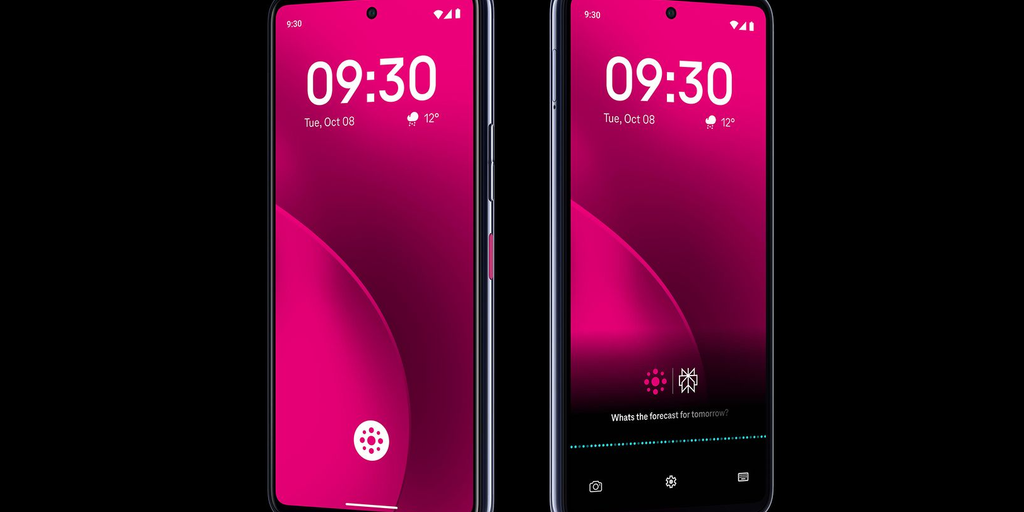Deutsche Telekom, Perplexity Team Up on AI Phone to Challenge Apple
In a groundbreaking move that could reshape the smartphone landscape, Deutsche Telekom, one of the world’s leading telecommunications companies, has announced a strategic partnership with the innovative $9 billion startup, Perplexity AI. Together, they are set to unveil a voice-first smartphone in 2026. This collaboration aims to challenge the dominance of tech giants like Apple by leveraging cutting-edge artificial intelligence technology.
The Rise of Voice-First Technology
Voice-first technology has gained significant traction in recent years, driven by advancements in AI and natural language processing. With the increasing reliance on digital assistants such as Siri, Alexa, and Google Assistant, consumers are becoming more accustomed to interacting with their devices through voice commands.
The upcoming voice-first smartphone from Deutsche Telekom and Perplexity AI promises to take this trend to new heights. By integrating sophisticated AI capabilities, the device is expected to offer a seamless user experience, allowing users to perform tasks, access information, and control their smartphones entirely through voice.
What Makes the Partnership Significant?
The collaboration between Deutsche Telekom and Perplexity AI is significant for several reasons:
- Innovative Technology: Perplexity AI is renowned for its advanced AI algorithms and natural language processing capabilities. This technology will empower the smartphone to understand and respond to user queries with exceptional accuracy.
- Telecom Expertise: Deutsche Telekom brings years of experience in the telecommunications industry, providing the necessary infrastructure and customer support to ensure the smartphone’s success in the market.
- Market Disruption: By combining their strengths, the partnership aims to disrupt the current smartphone market, primarily dominated by Apple and Android devices, and attract a new generation of tech-savvy consumers.
What to Expect from the Voice-First Smartphone
The upcoming voice-first smartphone is set to feature a range of exciting attributes that could redefine how users interact with their devices:
1. Enhanced AI Capabilities
The device will be powered by Perplexity AI’s state-of-the-art artificial intelligence, enabling it to learn from user interactions and adapt its responses over time. This means the smartphone will become increasingly intuitive, providing personalized recommendations and assistance tailored to individual needs.
2. Seamless Voice Interaction
Users will be able to engage with the smartphone using natural language, making it easier than ever to send messages, make calls, and access apps. The voice recognition technology is expected to be highly accurate, even in noisy environments, ensuring that users can rely on it in various situations.
3. Integration with Smart Home Devices
The device is likely to integrate seamlessly with smart home technologies, allowing users to control their home environment through voice commands. Whether it’s adjusting the thermostat, turning on lights, or managing security systems, the smartphone will act as a central hub for smart home management.
Market Competition: Challenging Apple
Apple has long been a dominant force in the smartphone market, known for its innovation and user-friendly design. However, the partnership between Deutsche Telekom and Perplexity AI presents a formidable challenge to Apple’s reign. Here’s how:
- Unique Selling Proposition: The voice-first approach sets this smartphone apart from traditional devices, targeting consumers looking for a more interactive and hands-free experience.
- Affordability: By leveraging Deutsche Telekom’s existing customer base and infrastructure, the new smartphone may offer competitive pricing, making it an attractive alternative for budget-conscious consumers.
- Focus on AI: With AI becoming a central aspect of consumer technology, the partnership’s emphasis on advanced AI capabilities will likely resonate with tech enthusiasts eager for innovation.
Challenges Ahead
While the partnership has immense potential, several challenges must be addressed to ensure success:
1. Consumer Adoption
Transitioning users from traditional smartphones to a voice-first interface requires effective marketing and education about the benefits of the new technology. Overcoming skepticism will be crucial for widespread adoption.
2. Competition from Established Brands
Apple, Samsung, and other established manufacturers will not sit idly by as new competitors emerge. These companies are likely to respond with their own innovations, making the market even more competitive.
3. Privacy Concerns
As with any device that relies on voice recognition, privacy concerns will be paramount. Users need assurance that their conversations and data will be protected, which will require transparent policies and robust security measures.
The Future of AI in Smartphones
The partnership between Deutsche Telekom and Perplexity AI is a clear indication of the growing importance of artificial intelligence in the smartphone industry. As technology continues to evolve, we can expect to see:
- Increased Customization: Future smartphones will likely offer even more personalized experiences, tailored to individual preferences and behaviors.
- Advancements in AI: As AI technology progresses, we can anticipate smarter, more capable devices that can perform complex tasks seamlessly.
- Broader Market Impact: The introduction of innovative devices like the voice-first smartphone will influence consumer behavior and expectations, pushing other manufacturers to innovate continuously.
Conclusion
The collaboration between Deutsche Telekom and Perplexity AI marks a significant milestone in the evolution of smartphones. By focusing on voice-first technology and leveraging AI, they aim to create a device that not only challenges the status quo but also sets the stage for the future of mobile communication. As we look toward 2026, the excitement surrounding this partnership continues to grow, promising a new era in smartphone technology that may redefine how we interact with our devices.






